From Paris to the Hauts-de-France region, from rooftops to roundtable debates, the CARE Program’s inaugural Summer School on Sufficiency, titled “Reimagining Paris: Sufficiency in Practice,” invited students to explore how sufficiency — a set of policy measures and daily practices that avoid the demand for energy, materials, water, land, and other natural resources while delivering well-being for all within the planetary boundaries — can become a concrete policy tool rather than a distant ideal.
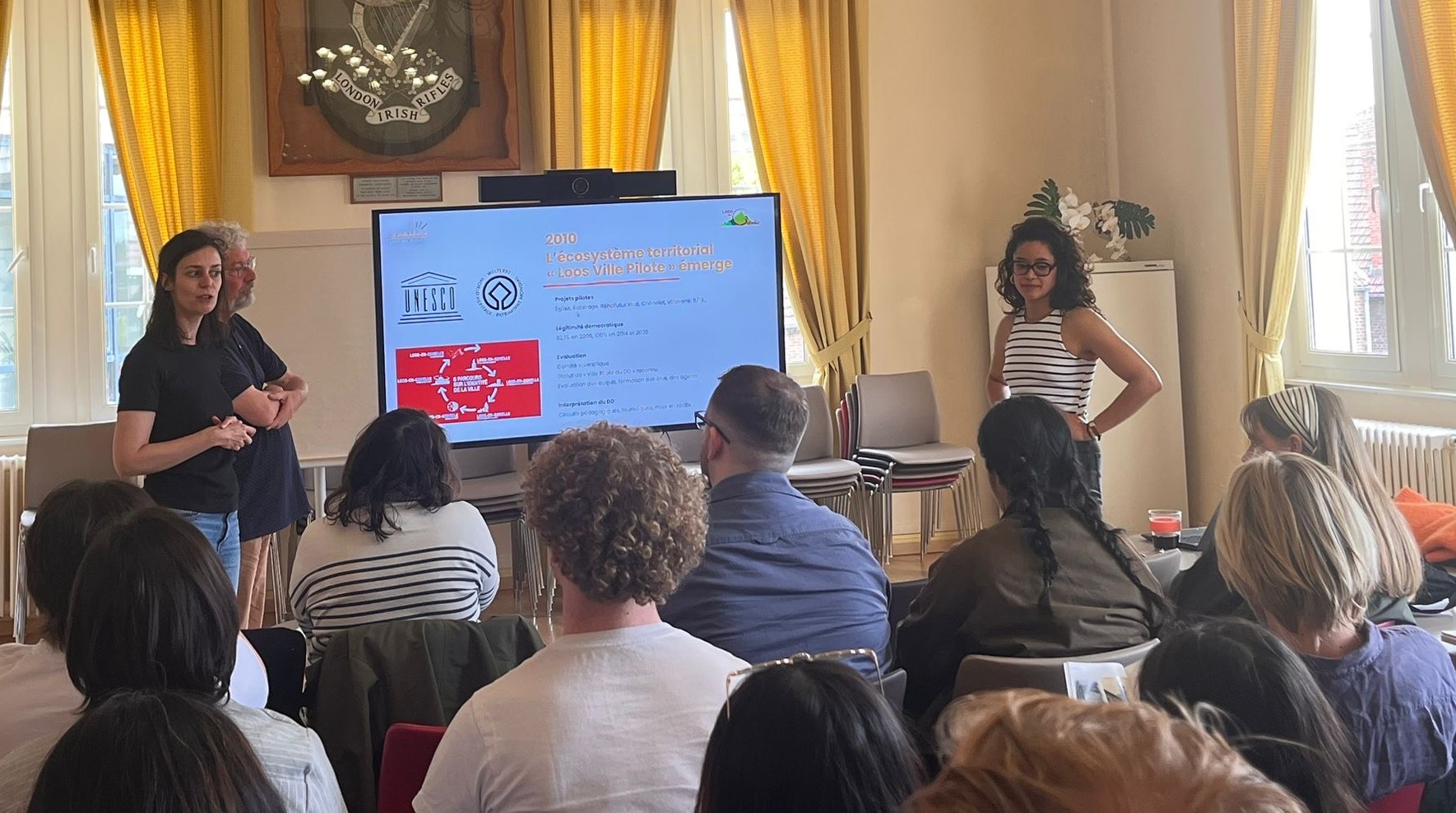
Co-organized with the World Sufficiency Lab (WSL), the summer school brought together 20 graduate students from Sciences Po Paris and Canadian partner universities for a hands-on, policy-engaged experience, grounded in the leadership of Dr. Yamina Saheb, IPCC author and Director of the WSL, and of the CARE Program at PSIA.
A Week of Collaborative, Practice-Based Learning
The school opened with a keynote by Audrey Pulvar, Deputy Mayor of Paris in charge of sustainable food, agriculture, and short supply chains, who shared powerful insights on the City of Paris’s sustainable food policy — setting the tone for a week of reflection on sufficiency as both a political and practical agenda.
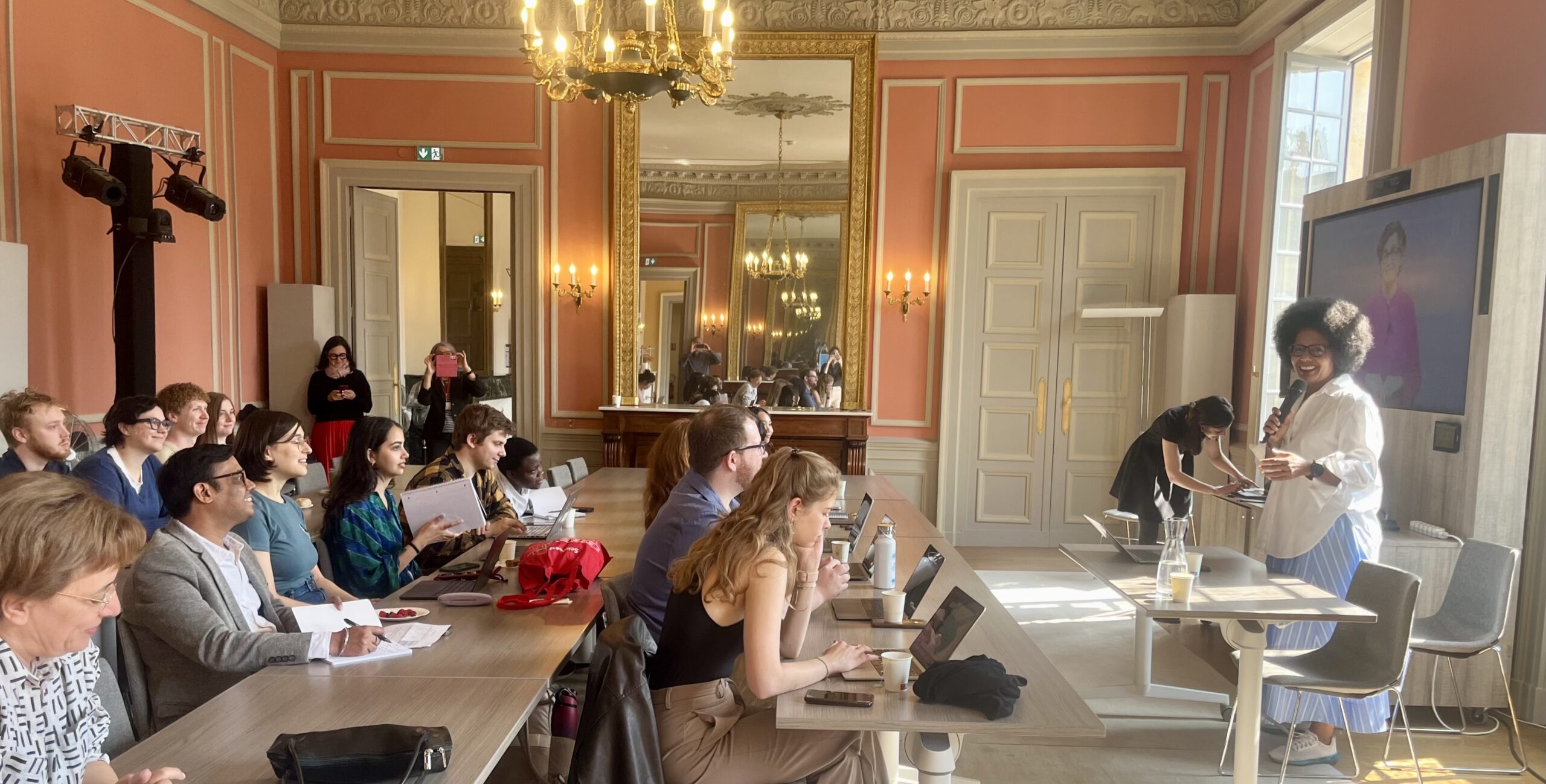
Throughout the week, students worked in four thematic teams focused on:
- Food and Nutrition
- Digitalization
- Trade and Commerce
- Urban Policies
Each team had spent months in advance mapping the sufficiency literature in their area. The summer school gave them the opportunity to test those insights in real-world contexts, meet with city officials and local actors, and develop bold new proposals for sufficiency-driven change.
Students engaged directly with representatives from the City of Paris, and their work was closely connected to ongoing municipal strategies on climate, energy, and public services. They also spent a full day in Hauts-de-France, exploring sufficiency policies at the regional level in Loos-en-Gohelle and Vimy, including approaches to local food systems, economic revitalization, and energy efficiency. This was also an opportunity for the summer school group to visit the Canadian National Vimy Memorial and reflect on how the history of this region has brought France and Canada closer together through key moments in the past.
From Rooftops to Roundtables
A defining feature of the week was its experiential dimension. On the second day, the cohort visited the Académie du Climat, where they toured a rooftop site created by Roofscapes, exploring how underused urban spaces can serve as hubs of urban resilience and biodiversity. The Académie du Climat later hosted the school’s final student presentations, where each team shared the results of their research, fieldwork, and collaboration.
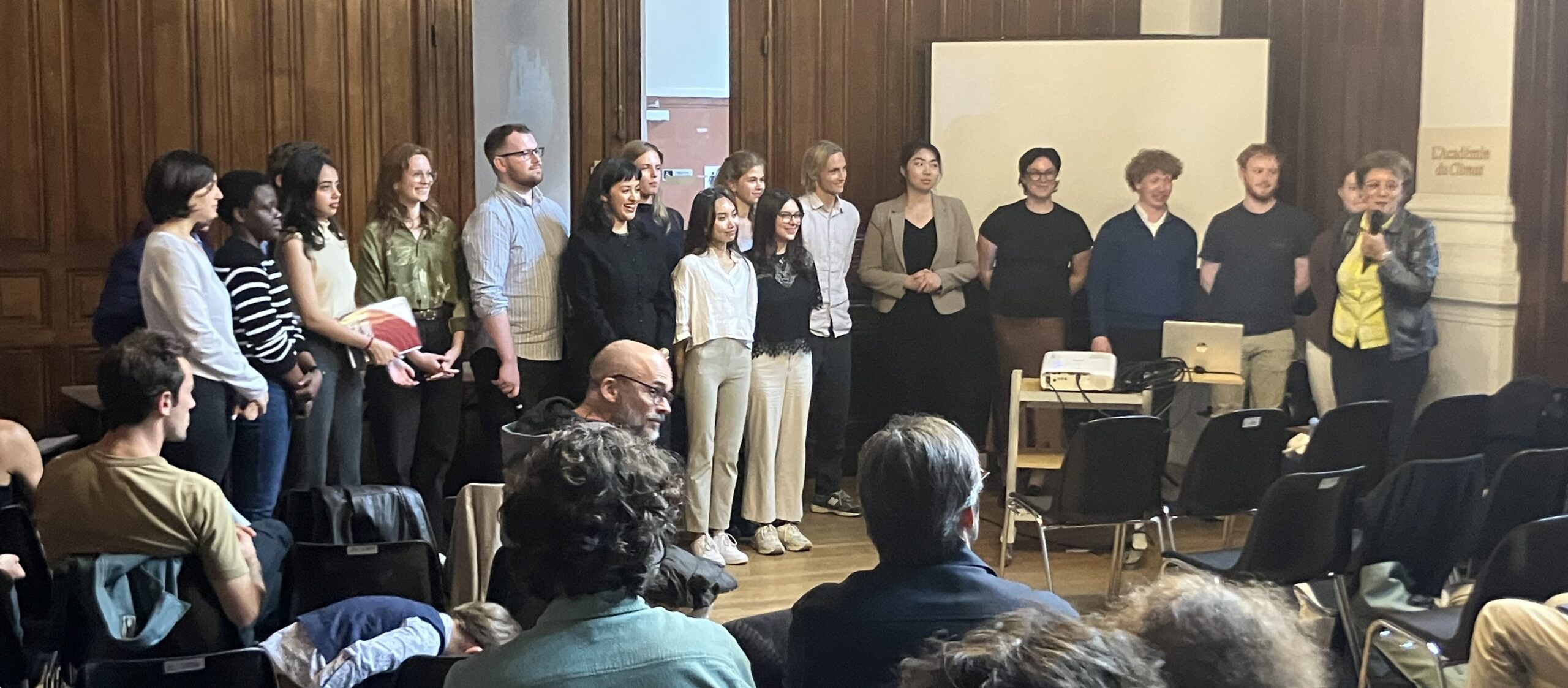
Another highlight was the high-level round table addressing how local, national, and European policymaking can champion sufficiency. The discussion spanned urban planning, legislative action, and citizen engagement—illustrating both the opportunities and political hurdles that come with pushing sufficiency from the margins to the mainstream.
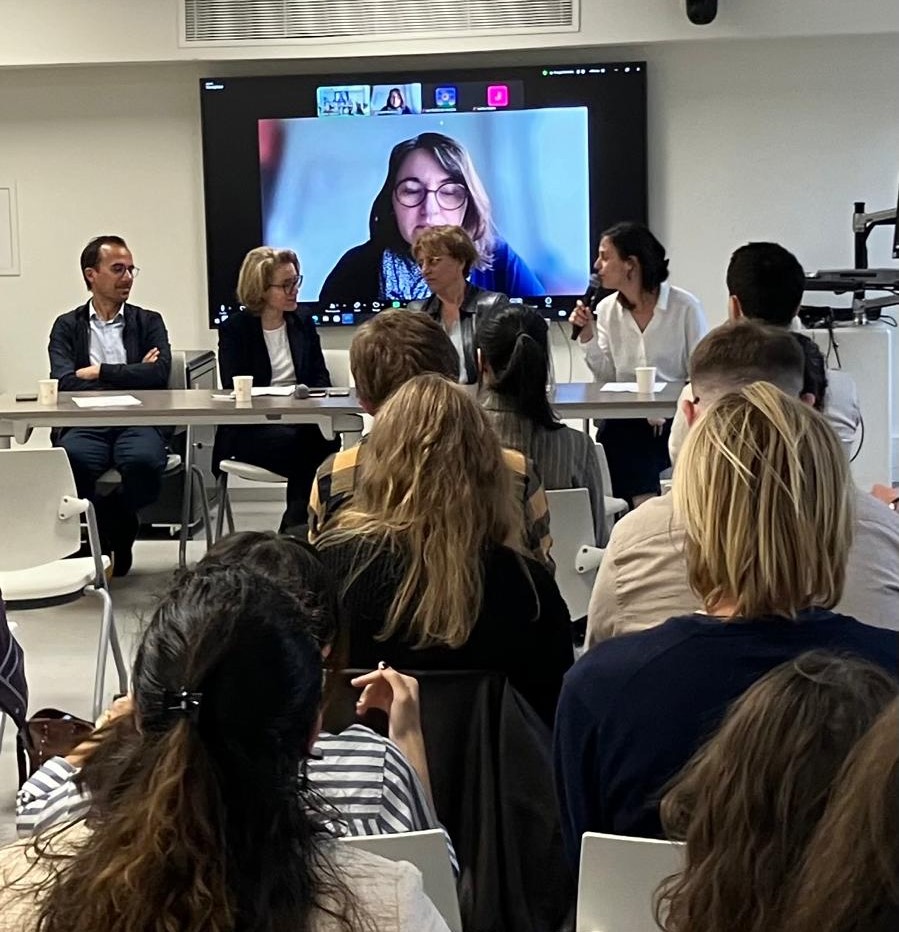
Toward a New Generation of Climate Leaders
What made “Reimagining Paris” distinctive was its emphasis on critical leadership, policy experimentation, and crossborder collaboration. The diversity of disciplinary backgrounds and perspectives—urban studies, economics, public policy, international affairs—gave rise to a rich collective learning experience. Participants not only engaged deeply with the technical and social dimensions of sufficiency, but also built meaningful connections across cultures, institutions, and geographies.
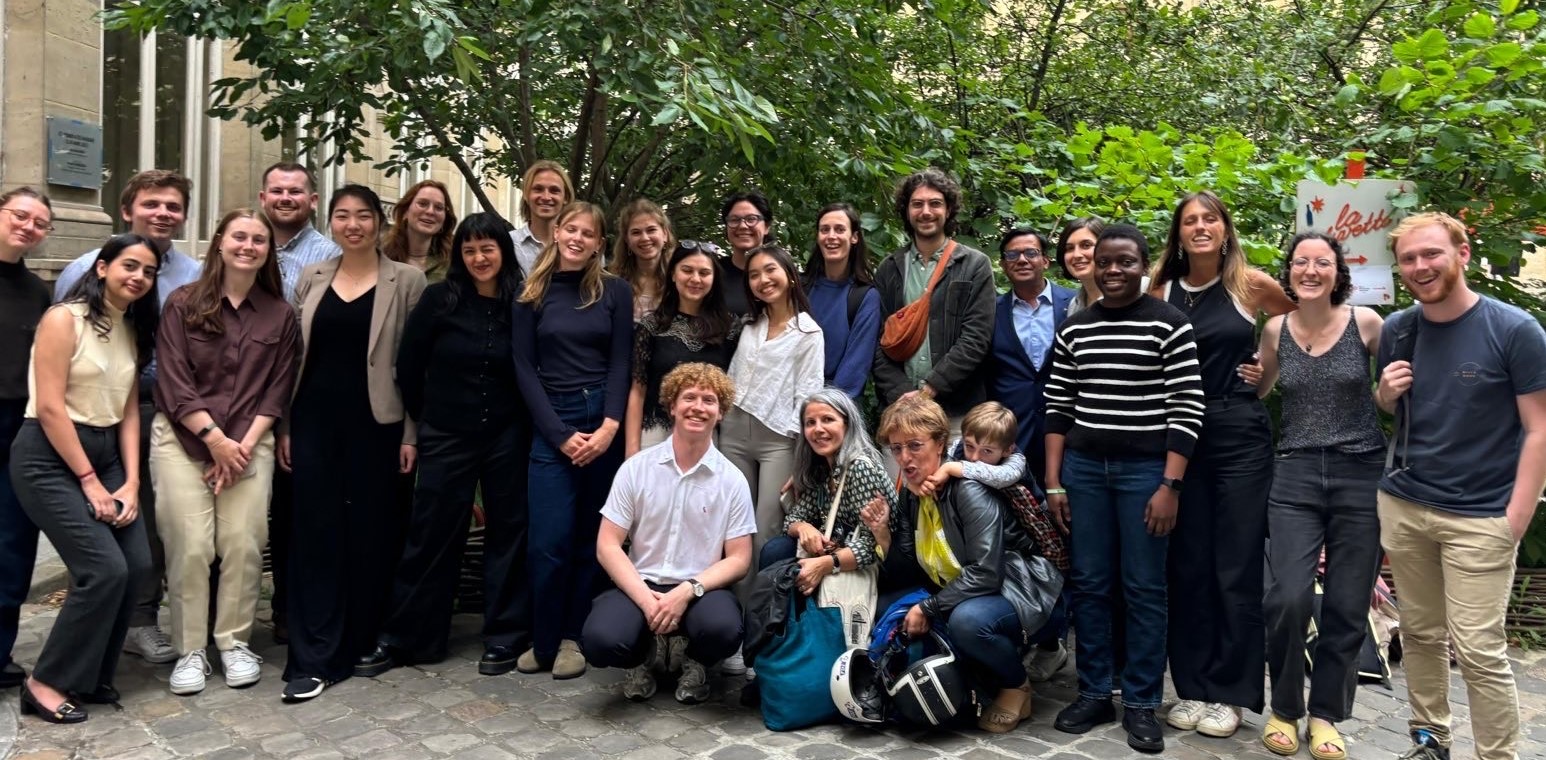
Led by Dr. Yamina Saheb and coordinated by the CARE Program at PSIA, this week was an important step in repositioning sufficiency as a serious policy pathway. It also reflected PSIA’s broader commitment to experiential, globally-connected, and justice-oriented climate education.
The CARE initiative will continue to integrate sufficiency into its teaching, partnerships, and student engagement in the months to come — because building a livable future means reimagining not only what we build, but how we live.